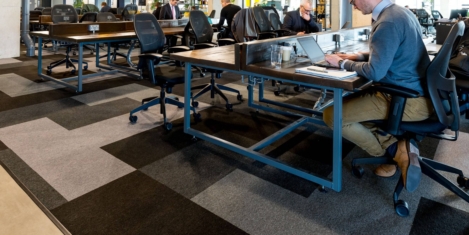August 1, 2018
Flexibility, daylight and a well-designed office are amongst most desirable workplace features
 Capital One has published the results of its latest survey of US full-time professionals for their thoughts on workplace design and the working environment as it relates to their productivity, innovation and collaboration with colleagues. According to the resulting 2018 Work Environment Survey of 3,500 office based respondents in urban centres across the US, many value flexibility and workplace design, particularly when evaluating whether to stay at their current job or consider a new employment opportunity. Employees also place a great deal of focus on technology, design elements such as lighting and agile workspaces, and personal wellbeing.
Capital One has published the results of its latest survey of US full-time professionals for their thoughts on workplace design and the working environment as it relates to their productivity, innovation and collaboration with colleagues. According to the resulting 2018 Work Environment Survey of 3,500 office based respondents in urban centres across the US, many value flexibility and workplace design, particularly when evaluating whether to stay at their current job or consider a new employment opportunity. Employees also place a great deal of focus on technology, design elements such as lighting and agile workspaces, and personal wellbeing.




































July 31, 2018
Google should be an example to all when it come to interactive workplace design
by Alice Porter • Comment, Workplace design
(more…)